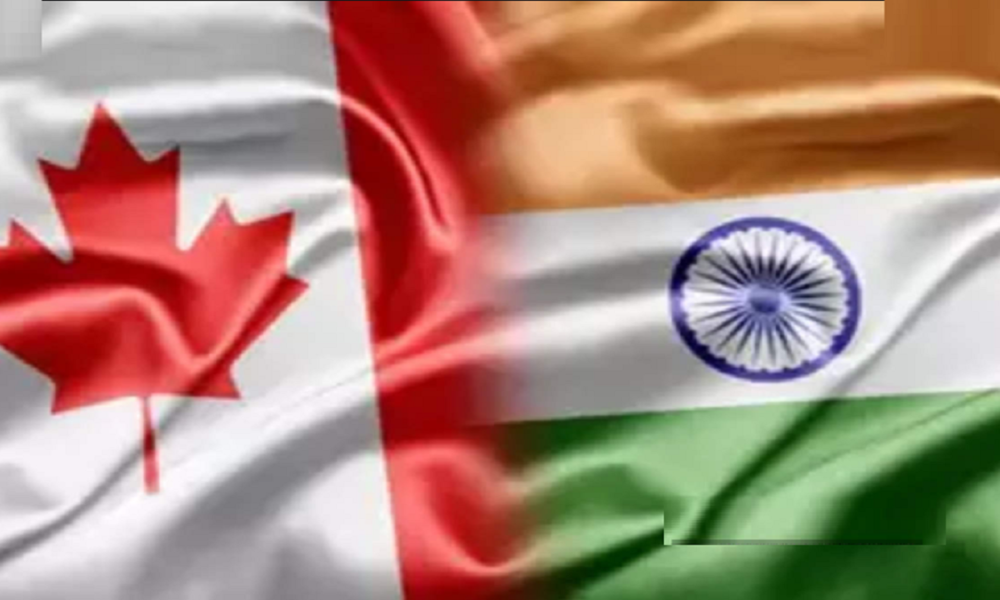The key to India’s “Act East” policy lies in the West. Today, the United States is being seen globally as India’s formidable diplomatic partner and an honest friend to do trade and security partnerships, but New Delhi has left a potential for strategic diplomacy untapped. Just moving a bit further up in the northeast of Washington DC, India can maximise the potential of ties with Canada to make its surge in the Indo-Pacific easier and its resilience against China more strategic and potent.
New Delhi and Ottawa must bridge gaps to encourage more bilateral to open prospects for free markets, a strong counter-terrorism and climate security cooperation, and channels of security partnerships to strategically manage the Indo-Pacific region.
Today, Canada has become the new home for Indian techies, scientists, researchers and students, who are finding it hard to pursue their “Big American Dream” in the US, blame it on President Donald Trump’s visa restrictions. Instead, the gritty skilled Indians are out to make East Canada the new Silicon Valley and many have already made the plans to make Canada their new homes. Canada’s currency (25% less than the US) and proximity to all major markets and its unparalleled trade relations make it the best place to “land and expand” as a North American growth strategy.
The Covid-19 pandemic has given an opportunity, which needs to be encashed, says Shuvaloy Majumdar, an international affairs specialist in Ottawa. Majumdar, who is the Programme Director and Munk Senior Fellow for Foreign Policy at Canada’s Macdonald Laurier Institute, tells The Daily Guardian: “The pandemic has catalysed a global reorder that had long been coming, posed by the confluences of multi-polarity, populism and technology. In this contest, China’s rise challenges post-war institutions, and new partnerships must be forged. For India, Canada presents an opportunity for not only its own economic development and growth, but for partnerships toward the strategic management of the Indo-Pacific region, global governance in technology, establishing powerful supply chains generating jobs and investment in both, and for strategic cooperation between democracies.”
Canada can be India’s strategic but how? Majumdar explains: “During Prime Minister Narendra Modi’s visit to Canada, he and his then counterpart Stephen Harper succeeded at elevating the bilateral relationship to a level unseen between the two countries as a strategic partnership. It resulted in nuclear cooperation, billions of dollars of investment in India, and the possibility of stronger diplomatic and security cooperation. I would say the question isn’t whether a strategic partnership should be forged, but how absolutely vital that partnership is in the growth of both democracies.”
And he offers a mantra to build this strategic relationship climaxing to secure the Indo-Pacific region. “The story is yet to be written, and cooperation is absolutely critical in confronting China’s belligerence. India is on a groundbreaking path in fiercely contesting China’s provocations in Ladakh. If accompanied by continued bold economic reforms, an empowered private sector, and stronger state-level and corporate governance — India can lead the kind of growth the Indo Pacific region demands. There is no better partner for Indian economic development in the world than Canada. If Canadian security and diplomatic interests centrally feature this partnership with India across the Indo Pacific region, then what unites both will be less about being anti-China, and much more about seeing the democratic model succeed over the despotic one,” adds Majumdar.
Sean Languedoc is a global talent recruiter and is CEO of Canada-based Global Talent Accelerator. He is currently busy channelising the stranded Indian HI-B visa seekers to Canada and “hunting” skilled Indians to maximise the prospect of strong Indo-Canada relations built on “talent transfers”.
Languedoc strongly believes the trade between Canada and India is the most under-leveraged opportunity. “Canada and India need to move from resources to levering the burgeoning trade opportunities in technology, IP, and talent… Canada’s trade with India is only $3.6 billion and it is almost entirely resources. Technology is driving Canada and now contributes more to GDP than all those resource sectors combined. India needs to leverage Canada’s tremendous global free trade agreements, and use Canada as a port of entry for tech and products to other markets — especially the US.”
Raj Narula, a prominent diaspora name in Canada for his successes as an investor and entrepreneur, told TDG that strong IndiaCanada engagement can be productive in many ways for New Delhi. “Canada can support India’s energy security ambitions through increased exports of conventional and nuclear energy as well as clean and renewable energy technology; it can help in urban and transportation infrastructure; can have a stronger educational relations with the visas for Indian students threatening to become an issue with President Donald Trump’s visa ‘diktat’.”
Narula, who has worked for long years in various verticals of Canada’s technology sector says, Canada can also be India’s strong partner to exchange skills training to enhance the curriculum of its technical skills institutions. His optimism comes from strong umbilical cords joining the twocountries. Narula says, “Covid-19 has brought about an opportunity to reset how business will be conducted for a number of years to come for all countries.”
He puts his best bets for future ties on healthcare, energy, education and technology. “These should be the forefront of discussions and bilateral discussions with key decision makers,” says Narula, adding: “As the second largest landmass, Canada has deep expertise in building and deploying solutions to help solve its challenges. India can greatly benefit. Canada has been investing in research for decades and it has helped to establish hundreds of very successful companies that have leveraged these funds to grow. ISED Canada has approved additional funding to help alleviate the Covid-19 crisis to ensure solutions are being developed and tested in areas like healthcare, remote connectivity and security, among others.”
India’s talent has also struck Canada. Narula says, for Canada tapping into the knowledge base in India that has seen over 30 Unicorns being created in the past 5- 10 years would help Canada better understand the depth of India’s ability to successfully deliver services to its citizens. “Companies in India like Paytm and Jio are leading the way in how a population base can transform and benefit from its services. Indian corporations are very successful in establishing foreign entities and assessing risk reward situations across the globe.”
In fact, Languedoc is also working on ‘talent triangle transfers’. “Canada’s immigration programmes including startup visa, global talent stream work visa, and inter-company transfers allow Indian companies to set up with ease and support. We at Global Talent Accelerator. com have been facilitating India-US and India-based companies to set up a trade triangle of talent and software products within Canada.’’
The strong diaspora feels that trade and investments would be one of the easiest routes to advance all other discussions as they will impact growth for both countries. “Digital footprint has been the driver for a lot of the growth of services in Canada that has touched security as well. Seamless integration of secure services is a hallmark of all government delivered services,” says Narula, pointing at these as cooperation areas for New Delhi and Ottawa.
India-Canada ties have revolved around investments in infrastructure, trade opportunities in pulses and fertilisers and a strong diaspora connection due to the contributions made by the Indian immigrants, now well settled and no less than their rich and famous counterparts in the US. But Narula is frank in admitting, “Strategically India and Canada despite having the best interest at stake have had delays in advancing opportunities. Canada has deep capabilities in the education vertical and can play a role in helping India establish knowledge and best practices that will enable students in India to seamlessly enter Industry 4.0 with imparting of skills and knowhow.”
With India now eyeing to be the global market and compete with China, Canada can assist India with its deep knowledge of China to alleviate concerns on making meaningful decisions. An ace investor, Narula pushes Canada’s next business destination for India. “Doing business in the US is getting harder by the day and this is not seen to change in the foreseeable future. Canada becomes very strategic as a country to definitely invest in for the next few years,” Narula signs off.







